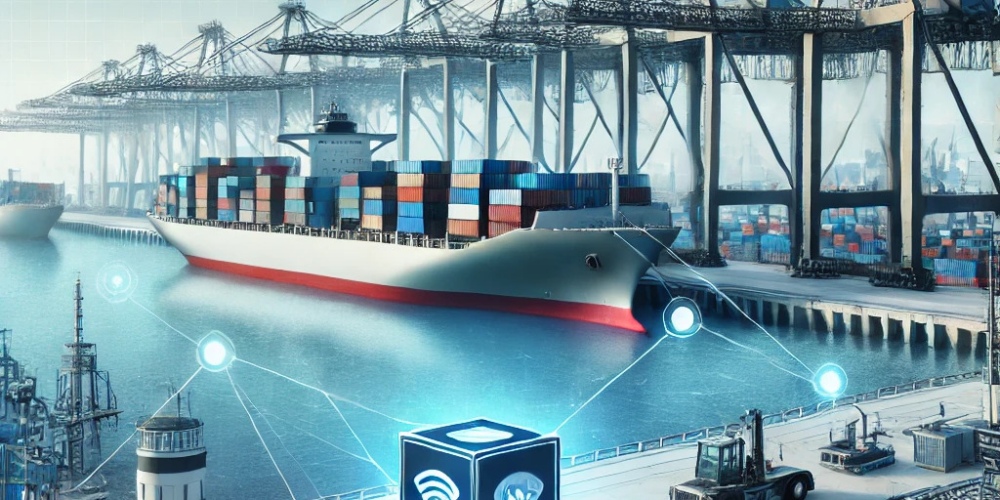
Digital transformation is driving significant changes in many industries, including the maritime sector. At the center of this transformation are smart ports, which are making maritime operations more modern, secure, and environmentally friendly by increasing efficiency, promoting sustainability, and reducing costs. Equipped with today’s technologies, smart ports leverage Internet of Things (IoT), artificial intelligence (AI), automation, and big data to offer new opportunities for the maritime industry.
What is a Smart Port?
A smart port is a digitalized structure that automates and optimizes port operations through advanced technology. Smart ports manage processes ranging from cargo movements to ship traffic digitally, enabling faster, safer, and more efficient logistics. For example, container movements can be tracked in real-time with sensor-equipped containers, while AI-powered systems optimize ship arrival and departure schedules.
Technologies Enhancing Efficiency in the Maritime Industry
Smart ports utilize various technologies that speed up logistics processes and reduce costs. Particularly, automation minimizes the need for manual labor in loading and unloading processes, increasing speed and reducing error rates. Additionally, IoT-equipped devices enable real-time detection of any issues in the port, allowing for immediate response.
Big data and data analytics also play crucial roles in port management. Operational data is collected and analyzed, allowing for better decision-making based on historical data. By analyzing factors like ship movements, cargo density, and weather conditions, port authorities can plan operations accordingly.
Environmental Sustainability and Smart Ports
Sustainability is an increasingly important topic for the maritime industry, and smart ports offer several solutions for reducing the carbon footprint. Eco-friendly practices are promoted through smart lighting systems, renewable energy sources, and waste management systems to minimize environmental impacts. Additionally, the use of electric vehicles and hybrid technologies in port operations makes smart ports even more environmentally friendly.
Safety and the Role of Digitalization in the Maritime Industry
The digital technologies used in smart ports provide significant advantages for security as well. With IoT and sensor technology, potential risks in the port can be detected early, allowing for preventive measures. At the same time, security cameras and AI-based systems continuously monitor the port area, playing an effective role in preventing theft and accidents.
Benefits of Smart Ports for the Maritime Industry
Some key benefits of smart ports for the maritime industry include:
- Operational Efficiency: Digitalization enables port operations to be faster and more cost-effective.
- Environmental Sustainability: Smart ports contribute significantly to reducing energy consumption and carbon emissions.
- Increased Security: Smart systems maintain high security standards.
- Competitive Advantage: Digitalized ports gain a competitive edge by providing faster and more efficient services.
Conclusion: How Digital Transformation is Shaping the Maritime Industry
Smart ports play a crucial role in the maritime industry's digital transformation journey. With efficiency, security, and sustainability solutions offered by digital technologies, the maritime industry is moving towards a more prepared and future-oriented model. Smart ports are enhancing the industry’s growth potential while making it more environmentally friendly and secure. Every step taken in the digitalization journey contributes to making the maritime industry more modern and sustainable.
These advancements bring a new perspective to the sector by offering smart ports that increase operational success while reducing environmental impact.


